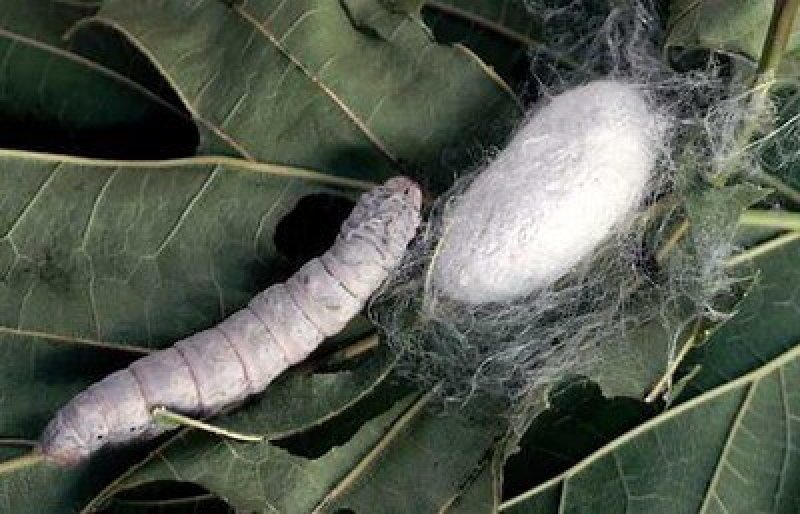The GLP aggregated and excerpted this blog/article to reflect the diversity of news, opinion and analysis.
In a first, the government has initiated field trials of transgenic silkworms that are not only resistant to diseases but will also help boost overall production of silk.
Multi-locational field trails of transgenic silkworm have been initiated in “contained facilities” after the approval of Review Committee of Genetic Manipulation (RCGM) at four locations. . . .
The loss of life of silkworms due to diseases prompted the research groups of Centre for DNA Fingerprinting and Diagnostics (CDFD), Hyderabad and APSSRDI to develop transgenic silkworms resistant to BmNPV virus.
This type of silkworms can be reared by the farming community through the year. . . .
. . . Mohammed Aslam, a senior scientist and adviser to the department of biotechnology under the ministry of science and technology (S&T) told PTI. . . the Indian silkworms have resistance to fight diseases.
Silkworms from China and Japan have the capacity to produce good quality silk but, if introduced in the tropical climate of India, they succumb to diseases as their resistance level is low.
. . . . In the past, scientists tried to cross-breed Indian and Chinese worms, but the success rate was just around 50-60%, Aslam added.
. . . .
“With the introduction of transgenic silkworm hybrids, apart from the resistance in the hybrid, the quality parameters with reference to silk grade will improve as compared to the present commercial hybrids.”
“Based on the series of trials conducted at lab level, it was observed that the transgenic silkworm hybrids once introduced at commercial level will be a boon to the sericulturists,” Aslam told PTI.
Read full, original post: Field trials of transgenic silkworms gets government nod































